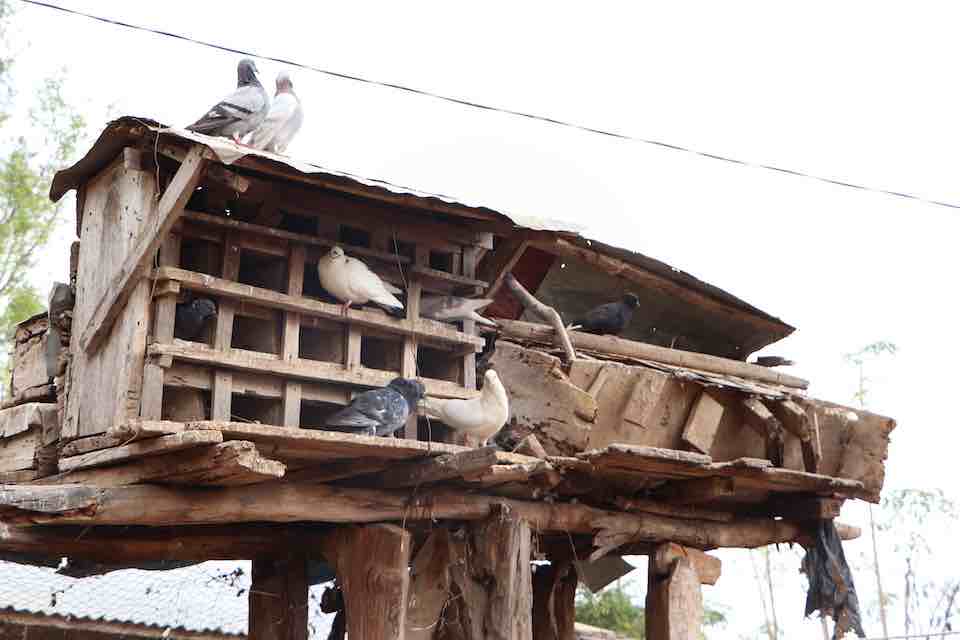More than 73,000 girls have been reached in the last two years by the Transform Nutrition project in 12 districts in Nampula province through Girls' Clubs that Inspire activities. The five year project is funded by USAID and implemented by ADPP in collaboration with the Global Alliance for Improved Nutrition (GAIN), the University of Lúrio (UniLúrio), the h2n Association and Viamo.
The project essentially aims to improve the nutritional status of 260,000 adolescent girls, 118,000 pregnant and lactating women, and 165,000 children under the age of 2.
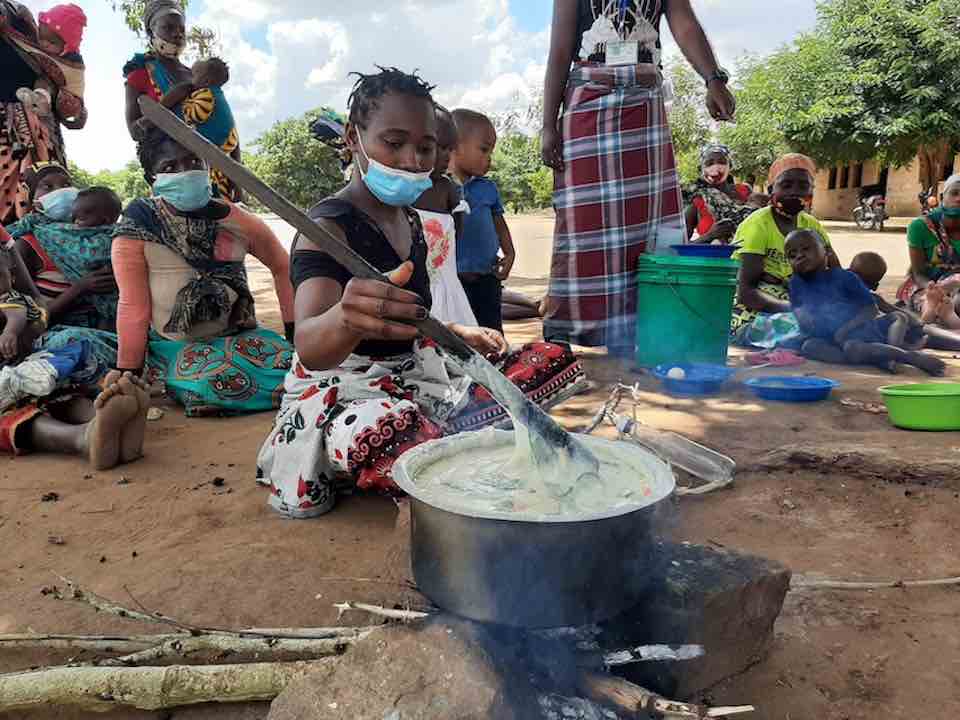
Girls' Clubs that Inspire is a concept adopted by the Transform Nutrition project in which groups of girls aged 10-19 learn, under the leadership of a mentor, about nutrition, the prevention of unwanted pregnancies, good hygiene and sanitation practices, women's body development, anemia prevention, and, among other relevant topics.
The girls' club sessions last five months, and at the end of this period those who have participated in at least 75% of the sessions are graduated and go on to give lectures, prepare educational plays, and share their experiences with new girls' clubs. In these first two years of implementation, a total of 2040 adolescent girls have graduated.
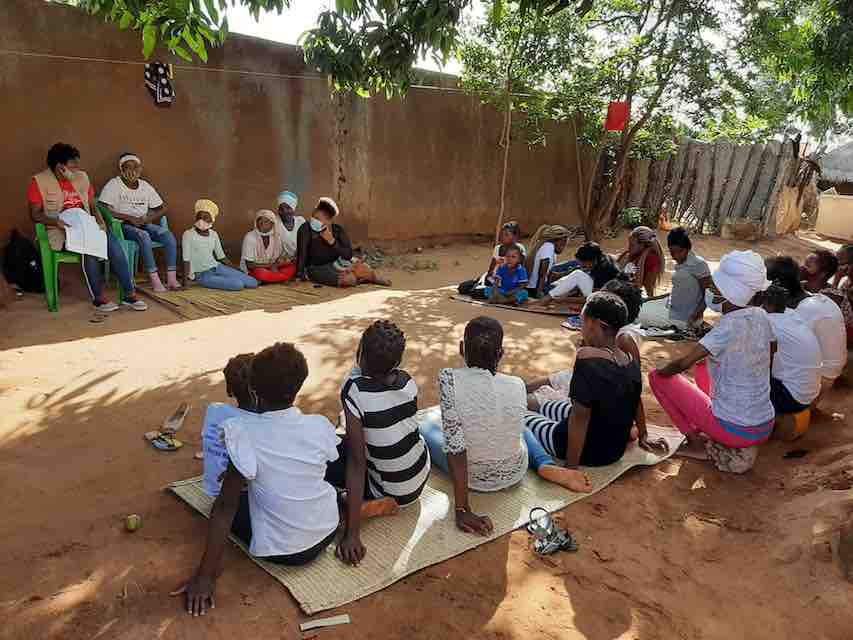
Leonardo Roroge, Mentor in the project, is convinced that the purpose of the project is being well received by the girls and their families.
"We are encouraged by the transformations the project is bringing about in the lives of the girls and their families. From the day to day interaction we have established in the sessions, we are finding that they are serving as a real catalyst vehicle for influencing their parents to change their attitudes. They have come to play an important role in the family, especially in terms of adopting new role models.
"We also noticed that it became common to find an entire community with backyards equipped with toilets, canopies for washing dishes, and a small vegetable garden, which was previously totally unknown."
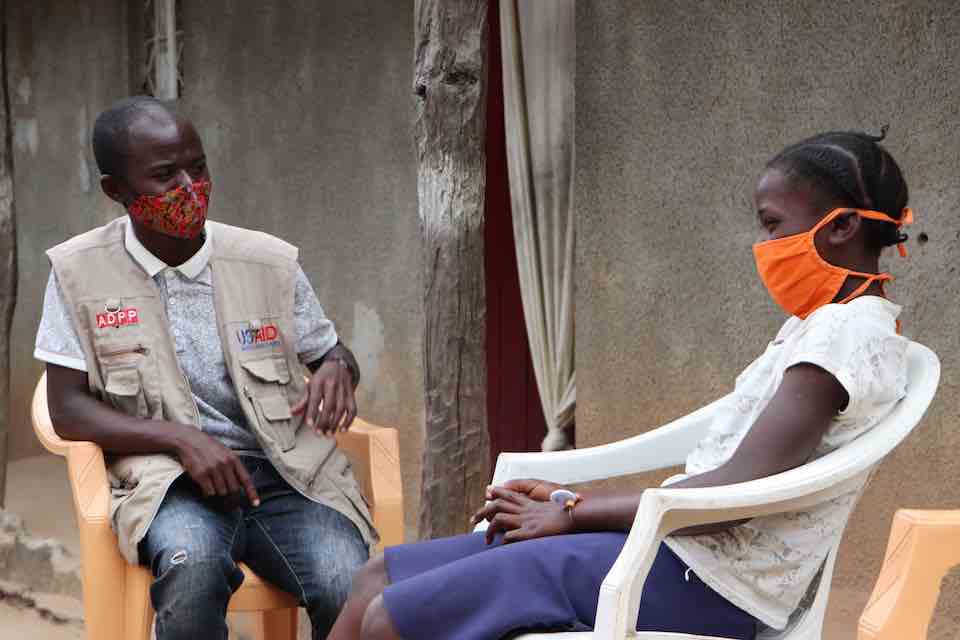
Micaela da Teresa and Ginoca Lucas, 15 and 18 years old respectively, are two sisters who are part of a girls' club in the main village of Rapale. Both they and their mother are pleased with the results the sessions are bringing for the good of their household.
"My sister and I have participated in the girls club assiduously since the time the project started in our community. Both we and our mother are pleased with the changes that are taking place in our home and our way of life. Before the Mentor's teachings our yard was empty, but now we have a bathroom with a latrine, a pantry for washing and drying dishes, a duck farm, and a vegetable garden that not only saves money, but is helping us to balance our diet and become well nourished. Our house has become a model in our neighborhood, all the neighbors appreciate the layout of the yard, and so much so that we pass on the experience gained in the club".

The Girls' Club is a real school for life
Laurinda Américo, 20 years old, lives in Rapale sede, in Nampula province, and is a member of the Girls Club project. She joined the group through the invitation of her uncle, who coincidentally is a Mentor in the same project.
"Before joining the Girls Club I was a simple girl who depended only on the instructions from my parents, I did not contribute in any initiative for the development of the conditions of our home. Today I am proud because I am active, I can already help clarify some issues that my parents didn't know about, such as eating habits, which in a way allowed us to have a balance in our diet, by investing in animal husbandry, food diversification, and frequent intake of the most important foods for our nutritional stability".
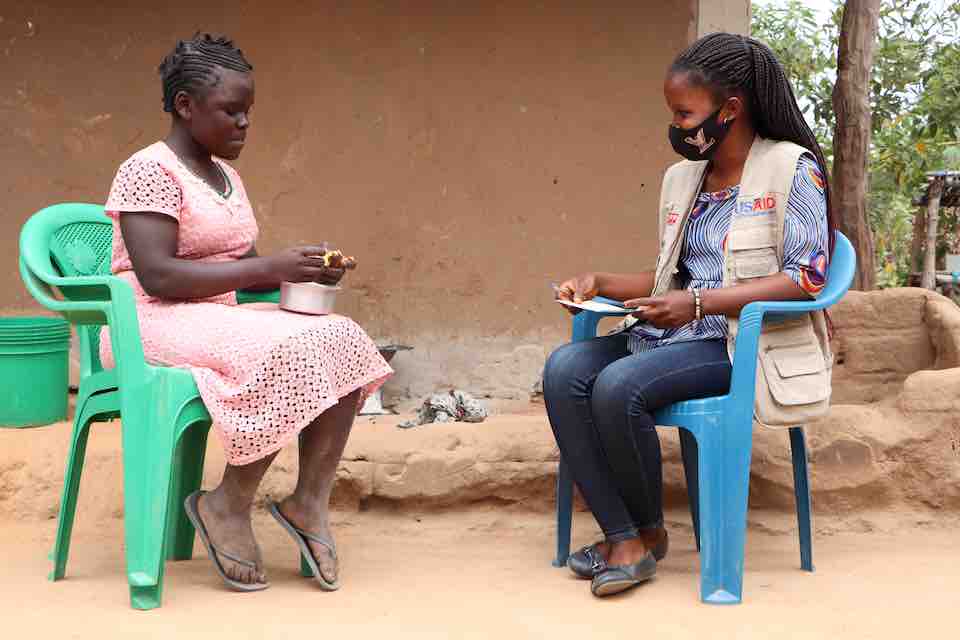
Through the Girls' Club I convinced my father to reactivate pigeon breeding
Angelina Maria, a teenager of just 13 years old, was able to convince her father to reactivate pigeon breeding to vary the food in her home and improve her nutritional status.
"My father had already stopped pigeon breeding more than three years ago, however the loft structure was still standing in our backyard. Because I learned in the girls' club the necessity of varying the food, I convinced my father to continue with pigeon breeding. With the restoration of pigeon breeding we save money in our daily lives because we get the curry in our own house.
